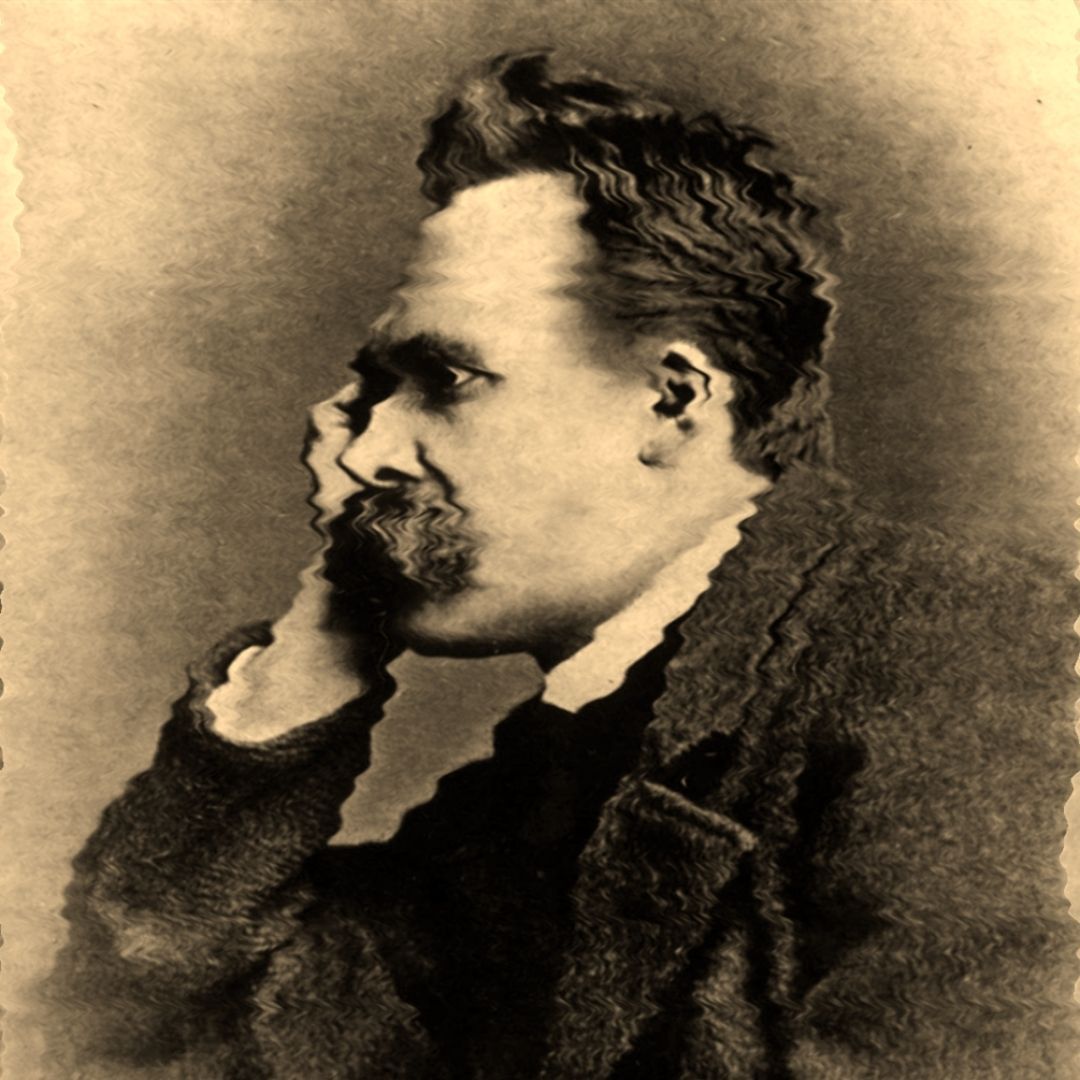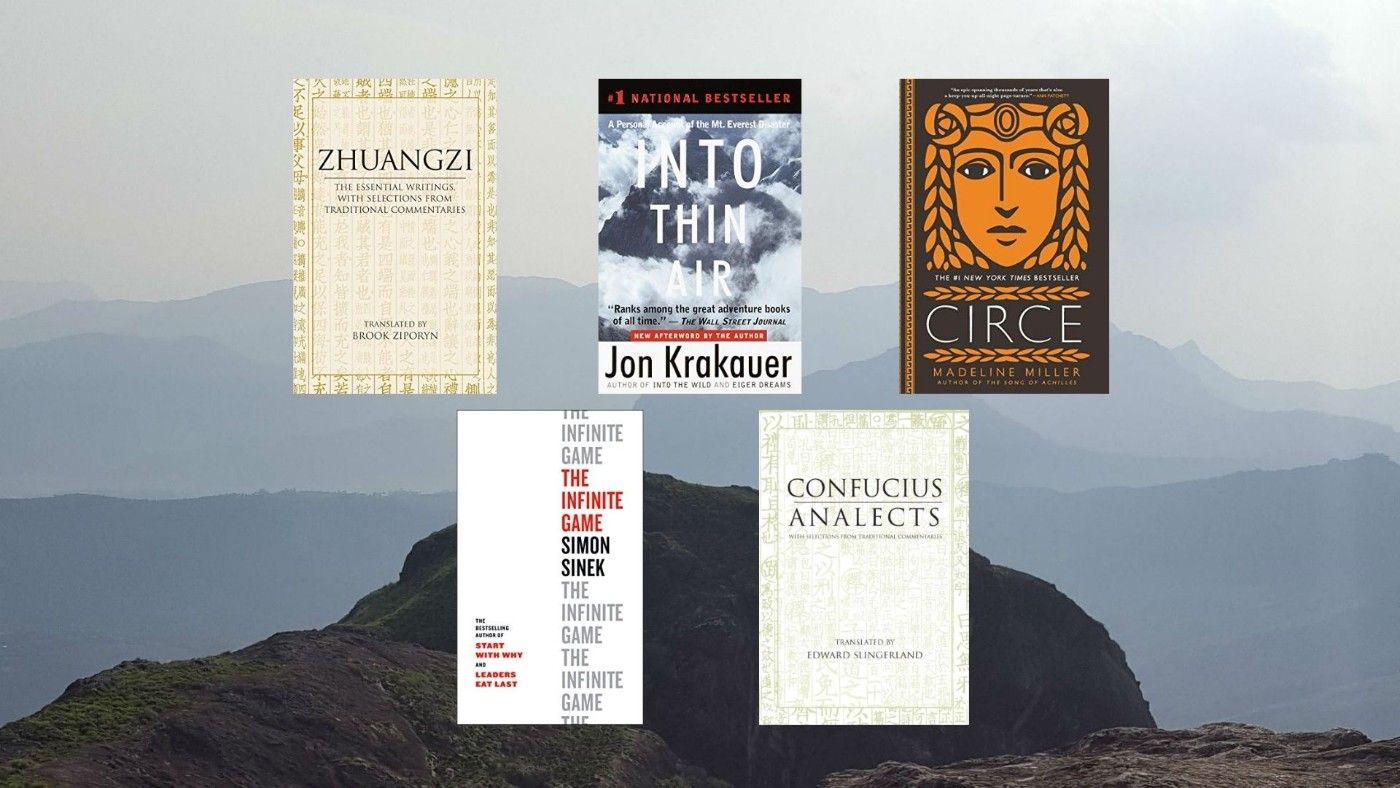You can listen to this post in audio format (or download here):
It's become too easy in our modern age to fall prey to pessimistic and negative attitudes about life, the future, and the possibility of happiness.
'What's the purpose of it all?' we might ask. How can we find meaning among this wreckage, this abomination of a world we've created?
Our dominant visions of the future don't allow us much room for optimism. We're told, often and loudly, about the looming doomsday of the climate emergency, about the multitude of ecological disasters unfolding on our watch, about our over-consumption of finite resources, and about our cruelty and inhumanity towards fellow human beings.
All of this, while also being in the grips of a global pandemic and its endless permutations of named variants. There seems to be no end in sight. No room for a shred of optimism or a morsel of happiness.
If we're to believe the stories about this terrible and inevitable future, then ours is destined to be an age of extreme pessimism.
It may seem that our primary purpose in life is to suffer, and that our only hope for happiness is the end of suffering. Nietzsche probably would have agreed with the former statement–that our purpose is to suffer. I think he would have strongly disagreed with the latter. Nietzsche was no pessimist, and he strongly believed in the possibility of achieving happiness despite our suffering. But how?
According to Nietzsche in The Joyous Science (previously translated as The Gay Science—I'm using a recent translation by R. Kevin Hill),
"The emergence of pessimistic philosophies is by no means a sign of some great and terrible distress; rather, these question marks regarding the worth of life arise when the human condition has been so improved and ameliorated that the inevitable mosquito bites of body and soul are found to be altogether too gruesome and gory, and in the poverty of their experience of actual pain, people will even take being troubled by ideas to be suffering of the highest order." [1]
From this perspective, like the bad philosophers we are, let's diagnose our current age of pessimism as stemming in large part from our being "troubled by ideas," as Nietzsche puts it in the above quote. The result? Suffering.
As Nietzsche articulates in that passage from 1882, the human condition has vastly improved since the prior age–what he terms elsewhere in this book as the age of fear. The age of fear was that era before modern times where immense human suffering was the norm: diseases and pandemics were rampant, mortality from all causes was much higher, people frequently died at a much younger age, and the majority of the world lived in extreme poverty and was subject to suffering through violence, oppression, starvation, and disasters of all kinds.
Don't get me wrong: in 1882, the vast majority of the world was still living in extreme poverty. It would be another century after Nietzsche wrote these words before there would be less people living in extreme poverty than those who were not. And from the mid-20th century onwards, rates of global poverty have continued to decline at a (mostly) steady clip.
Despite this, things had undeniably improved significantly in Europe at the time of Nietzsche's writing. And yet, as the material condition of the world (in terms of poverty, mortality, quality of life, etc.) has improved significantly, the age of fear has been replaced by what I would term an age of pessimism–to the point that small sufferings, or even ideas about potential suffering, have taken the place of 'real' suffering in our collective psyche.
To illustrate this, what do the climate crisis, ecological devastation, overconsumption, and our inhumanity towards others all have in common? Well, they're all largely ideas about trends that are happening now–trends that might eventually take us to a future state where real suffering will be immense. But if we compare the current state of the world to the past, things have never been better.
Sure, we are experiencing extreme weather events, heightened rates of extinction and biodiversity loss, resource depletion, and other ills set in motion by humanity. But these are all temporary ills; symptoms of our larger problems.
The key point is that our larger problems are not fixed states of our world. All of our big-picture problems can be addressed, resolved, and reversed so as to avoid potential mass suffering in the future–and in large part, we're already making progress (though we can certainly debate about whether or not we're making progress at a sufficient pace).
The thing is, our current age of pessimism is primarily a reflection of the attitude we hold towards our future state, rather than the state of our present world. But our future is only lost to mass suffering if we accept that these present trends are locked in place and can't be changed.
The only reason for extreme pessimism about the future is if we think that a bad outcome is inevitable–and that's hardly the case. Nothing tells us that we can't change the present, so why should we presume that we're doomed in the future?
The problem is that our suffering often has more to do with what we think is going to happen in the future than with what's actually happening now.
I'm going to tie this back to a study that I love hearing about. People are locked in a room and told that they can either sit there in silence for an indefinite period of time, or choose to voluntarily give themselves an electric shock with a device. Regardless of what they choose to do, they'll be waiting for the same amount of time.
Shockingly (pun intended), most people (especially men) preferred to shock themselves–to deliver themselves deliberate pain–than to simply sit and wait in silence [3]
This reveals some truth in what Nietzsche has to say about hardship and suffering:
"There is already a remedy for pessimistic philosophies and the squeamishness which seems to me our real hardship, the real ‘crying need of the hour’ – but perhaps this remedy sounds too cruel, and would itself be reckoned among the signs on the basis of which one now proclaims: ‘existence is evil’. Well then! The remedy for this ‘hardship’ is: hardship." [1]
So, for our diagnosis that our age of pessimism stems from our being "troubled by ideas," Nietzsche offers a prescription: hardship (suffering itself!).
Basically, the method we can use to overcome our pessimistic attitude towards life is to take on a bit of hardship, to endure a bit of suffering. And through doing so, we'll probably realize: hey this isn't so bad after all. In fact, this is just part of life.
We've evolved to suffer. We're meant to suffer. All of our best stories involve a protagonist who goes through some kind of hardship and comes out the other side a better person for it. That's what the hero's journey is all about.
So, let's summarize how this shift from fear to pessimism has ruined society:
In the past (the age of fear), humans had good reason to be fearful. Suffering was omnipresent, part of our daily lives. We didn't spend much time worrying about future suffering because we were too busy dealing with current suffering.
Now, in the age of pessimism, we don't suffer as much in the present because our quality of life is much improved. Instead, our suffering is rooted in our pessimism about the state of our lives, about the future, and about our potential to achieve happiness and fulfillment in a broken world.
This is a psychological suffering that stems from our anticipation of a miserable future (of course there are other causes of psychological suffering, but this is the one I'm focusing on for now).
As shown in the above experiment, people would rather suffer now than wait around for an uncertain future. Waiting in uncertainty is its own form of suffering. But we intuitively know that some small suffering in the present is a great distraction from the uncertainties of the future.
Our natural inclination (from the age of fear) is to focus all of our energy on the suffering we're experiencing in the hopes of overcoming it. But in the age of pessimism, this inclination has been hijacked. Our suffering is no longer about the material present, it's instead a psychological suffering about an uncertain future. So we focus all of our mental energy on our psychological suffering, and this manifests itself in an extreme form of pessimism–the idea that surely we're doomed.
Nietzsche thinks that to overcome our psychological suffering, we need to experience more hardship in life.
If we live menial lives devoid of any immediate material suffering, we naturally focus all of our worry-energy on our psychological suffering over big-picture concepts (like planning for the future, and seeking out meaning, purpose, and happiness).
In the age of fear, people didn't have time for an existential crisis because they were too worried about all of their immediate problems, such as: what will my next meal be? Is there a lion hiding in those bushes over there?
But when we take away any immediate source of suffering, we're naturally inclined to look for it elsewhere: we manifest suffering in other ways (anxiety over the future, lack of meaning, purposelessness, unhappiness). Our primitive brains aren't wired to feel secure and worry-free. Letting your guard down in primitive times would just make it easier for any number of things to kill you.
To further quote Nietzsche's point about the age of fear and the necessity of hardship:
"In those days, a man received a long schooling in bodily pain and privation, in the knowledge that even a certain cruelty towards himself, a willingness to suffer, was necessary for his preservation..." [1]
We've all experienced pain and material suffering to some degree. But our modern culture is obsessed with the idea of hiding or removing pain (has anyone watched the 2021 TV mini-series Dopesick? It shows how over-prescription of opioid painkillers for moderate pain resulted in an overdose and addiction crisis).
To Nietzsche, this is to our own detriment: according to him, a proper education in the school of life requires a familiarization with pain and the willingness to suffer. It's only when we're willing to accept suffering that we're capable of taking action and overcoming our hardships.
For me, I take this to heart. This might be a distinctly male trait, but I love and embrace specific forms of suffering: the difficulty of a long trail run, or a hike up a mountain, or of a multi-day excursion into the wilderness.
In my weaker moments I might shy away from these struggles, but when I'm out there doing it I always find that I'm having the time of my life. The key to happiness may just be in our ability to deal with the inevitability of suffering.
Maybe this is how we can overcome our psychological suffering in the age of pessimism: embrace the hardship, endure the suffering, and come out the other side having grown from the experience. That's what heroes do, and what is life other than a heroic journey into the unknown?
I, for one, am optimistic about the future. Not for the way it is now; rather, through great effort, for the ways it could be.
Food for thought:
I'd love to read your responses to these questions in the comments below.
- What's your opinion on Nietzsche's ideas around suffering and hardship?
- Do you welcome hardship into your life, or do you try to avoid it? Why or why not?
Sources:
-
Nietzsche, Friedrich. The Joyous Science, passage 48. Translated by R. Kevin Hill. Penguin Classics 2018.
Our World in Data. World population living in extreme poverty, 1820 to 2015
Science Magazine. Just think: The challenges of the disengaged mind.




